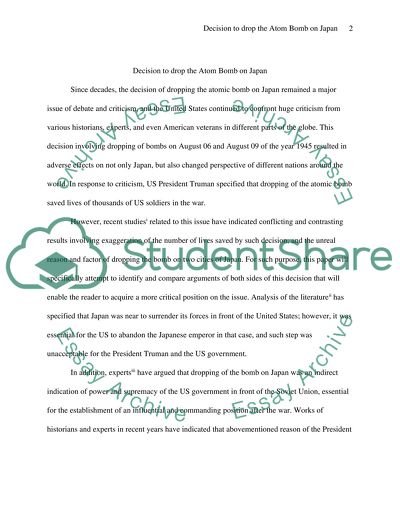Cite this document
(“The decision to drop the atom bomb on Japan Term Paper”, n.d.)
The decision to drop the atom bomb on Japan Term Paper. Retrieved from https://studentshare.org/miscellaneous/1557943-the-decision-to-drop-the-atom-bomb-on-japan
The decision to drop the atom bomb on Japan Term Paper. Retrieved from https://studentshare.org/miscellaneous/1557943-the-decision-to-drop-the-atom-bomb-on-japan
(The Decision to Drop the Atom Bomb on Japan Term Paper)
The Decision to Drop the Atom Bomb on Japan Term Paper. https://studentshare.org/miscellaneous/1557943-the-decision-to-drop-the-atom-bomb-on-japan.
The Decision to Drop the Atom Bomb on Japan Term Paper. https://studentshare.org/miscellaneous/1557943-the-decision-to-drop-the-atom-bomb-on-japan.
“The Decision to Drop the Atom Bomb on Japan Term Paper”, n.d. https://studentshare.org/miscellaneous/1557943-the-decision-to-drop-the-atom-bomb-on-japan.


